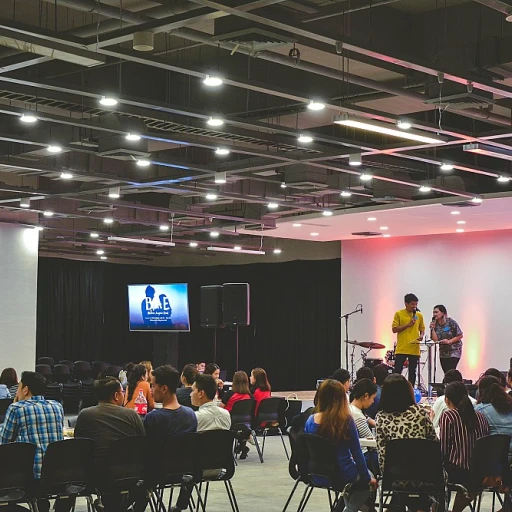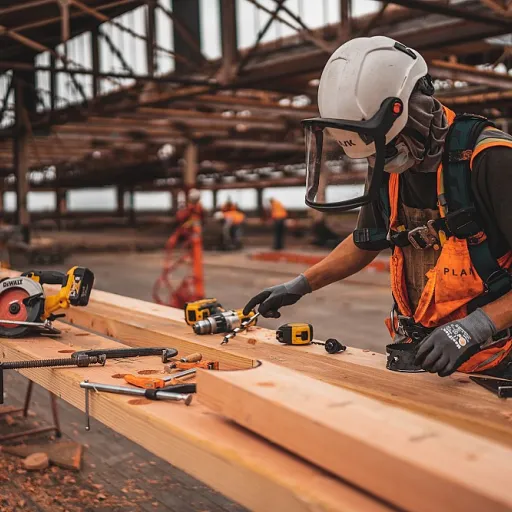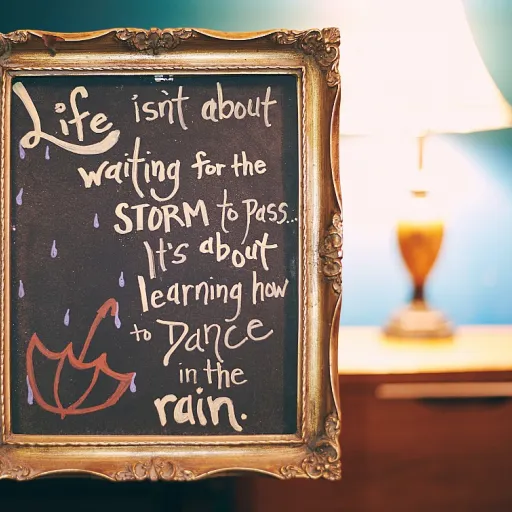
Understanding the unique communication needs in childcare hiring
Why Communication Matters When Hiring Childcare Help
When it comes to hiring a babysitter or nanny, communication is at the heart of every successful match. Parents and guardians want to feel comfortable leaving their children in the hands of someone who not only has experience caring for kids, but also understands the importance of clear, open-ended questions and honest dialogue. The way you communicate during the interview process sets the tone for your future relationship with your potential babysitter or nanny.
Unique Challenges in Childcare Interviews
Unlike other job interviews, a babysitter interview or nanny interview involves more than just reviewing a resume. You are entrusting someone with the safety and well-being of your child or baby. This means your questions should go beyond basic qualifications. You need to explore how the candidate will handle emergencies, their approach to child care, and whether they are comfortable with your family’s routines and expectations.
- Are they familiar with CPR aid and proper use of car seats?
- Can they provide examples of their experience caring for children of different ages?
- How do they handle stressful situations or conflicts between kids?
Setting the Stage for a Good Interview
Before you start the interview, consider what matters most to your family. Think about your child’s needs, your weekly schedule, and any specific requirements you have for the babysitter or nanny. This preparation will help you ask the right questions and identify the best fit for your home. If you’re looking for more insights on what candidates need to know before applying for jobs, you might find this resource on job openings and candidate expectations helpful.
Remember, the goal is to create a space where both you and the potential nanny or babysitter feel comfortable discussing expectations, experience, and any concerns. This foundation of trust and open communication will make the rest of the hiring process smoother and more effective.
Preparing for the interview: what to consider before meeting candidates
Setting the Stage for a Successful Babysitter Interview
Before you meet a potential babysitter or nanny, preparation is key to finding the best fit for your family. Taking the time to clarify your expectations and needs will help you ask the right interview questions and make the process smoother for everyone involved. Start by outlining what you need in terms of child care. Consider the ages of your children or baby, the hours and days you need help, and any special requirements such as experience with infants, CPR aid certification, or familiarity with car seats. Think about your family’s routines and values, and what qualities make a good babysitter or nanny for your home.What to Have Ready Before the Interview
- A clear job description: List the main duties, such as caring for children, preparing meals, or helping with homework.
- A list of must-have qualifications: For example, previous experience caring for kids, first aid training, or a driver’s license.
- Your preferred interview format: Decide if you want to start with a phone interview or meet in person right away.
- A set of open ended questions: These help you learn how a potential nanny or babysitter would handle real-life situations with your children.
Legal and Safety Considerations
It’s important to be aware of local employment laws and regulations when hiring a nanny or babysitter. Understanding legal requirements can help you avoid issues later on and ensure a safe environment for your kids. For more on this, see this resource on understanding employment law violations.Creating a Comfortable Environment
A good interview is a two-way conversation. Make sure the potential babysitter or nanny feels comfortable so they can answer questions honestly. Share information about your family, your children’s personalities, and your expectations. This helps the candidate decide if they are the right fit for your needs. Preparing in advance also gives you more time during the interview to focus on how the candidate responds to questions, both verbally and non-verbally. This will help you spot the best qualities in a potential babysitter and make a confident decision about who to hire.Key interview questions for a babysitter nanny
Questions that Reveal Experience and Approach
When interviewing a potential babysitter or nanny, it’s important to ask questions that go beyond basic qualifications. Open ended questions help you understand how the candidate thinks and reacts in real-life situations. For example:- Can you describe your previous experience caring for children of similar ages to ours?
- What activities do you enjoy doing with kids, and how do you keep them engaged over time?
- How would you handle a child who refuses to go to bed or follow instructions?
- Tell me about a challenging situation you faced while babysitting and how you resolved it.
- What do you think makes a good babysitter or nanny?
Assessing Safety and Practical Knowledge
Safety is a top priority when hiring a nanny or babysitter. Ask about their training and knowledge:- Are you certified in CPR or first aid for babies and children?
- Do you know how to properly install and use car seats?
- What steps would you take in case of a medical emergency?
Understanding Fit with Your Family
Every family is unique, so it’s important to ask questions that reveal whether the candidate will feel comfortable in your home and with your children:- What is your availability during the week, and are you flexible with start and end times?
- How do you approach discipline, and what methods have worked best for you?
- How do you communicate with parents about the child’s day or any concerns?
- What are your expectations from the family you work with?
Making the Most of the Interview Process
A good babysitter interview or nanny interview is not just about asking questions. It’s also about creating an environment where the candidate feels comfortable sharing their thoughts and experiences. Consider starting with a brief phone interview to screen for basic qualifications, then move to an in-person meeting to observe non-verbal cues and interactions with your children. For a deeper understanding of how to structure your interview and plan for the best outcomes, you can explore the pyramid of planned outcomes in HR communication for practical insights. Remember, the goal is to find someone who not only has the right experience but also fits well with your family and can provide the best care for your kids.Reading between the lines: interpreting answers and non-verbal cues
Spotting Authenticity in Answers
When interviewing a potential babysitter or nanny, it’s not just about the words they use. Pay attention to how they describe their experience caring for children. Are their answers specific, or do they rely on generalities? For example, when you ask open ended questions like, "Can you tell me about a time you had to handle a challenging situation with a child?", listen for real-life examples. A good babysitter will share detailed stories that show their understanding of child care and their ability to adapt.Observing Non-Verbal Communication
Non-verbal cues can reveal as much as spoken answers. During the nanny interview, notice if the candidate maintains eye contact, smiles naturally, and appears comfortable. Fidgeting, avoiding eye contact, or giving very short responses might signal discomfort or lack of experience. When discussing topics like CPR aid, car seats, or discipline, does the potential nanny seem confident and knowledgeable, or hesitant?Evaluating Comfort with Sensitive Topics
Some questions, especially those about emergencies or discipline, can make candidates nervous. It’s important to create an environment where the potential babysitter feels comfortable sharing honestly. Use open ended questions and give them time to respond. For example, "How would you handle a situation where a child refuses to go to bed?" Their body language and tone can help you gauge if they are truly prepared for the realities of caring for kids.Consistency Across Interview Stages
If you conducted a phone interview before meeting in person, compare the answers given at both stages. Consistency in their stories and approach is a good sign of reliability. If their answers change significantly, it may be worth asking follow-up questions to clarify.Checklist: What to Watch For
- Specific examples of experience caring for children or babies
- Comfort discussing topics like first aid, car seats, and routines
- Natural, confident body language
- Willingness to answer open ended questions nanny interview style
- Consistency between phone and in-person interviews
Addressing sensitive topics with empathy and clarity
Approaching Delicate Subjects with Respect
When hiring a babysitter or nanny, some topics can feel uncomfortable to bring up, but they are essential for the safety and well-being of your children. Addressing these questions with empathy and clarity helps both you and the potential babysitter feel comfortable and respected during the interview process.- Health and Safety: Ask about CPR aid certification, experience with car seats, and how the candidate would handle emergencies. For example, "Can you describe a time you had to respond to a medical situation while caring for kids?" Open ended questions like this allow the potential nanny to share real experience caring for children.
- Discipline and Boundaries: Questions about discipline methods can be sensitive. Frame them in a way that invites honest discussion, such as, "What approach do you use if a child refuses to listen?" or "How do you handle conflicts between children?" This helps you understand if their style aligns with your family values.
- Personal Beliefs and Values: If your family has specific routines, dietary needs, or cultural practices, ask how the babysitter would support these. For example, "Are you comfortable preparing meals according to our family's dietary preferences?" or "How do you feel about following a set bedtime routine?"
- Availability and Flexibility: Discussing scheduling, especially if you need care at unusual times or on short notice, can be tricky. Be direct but kind: "Are you available to work evenings or weekends if needed?" or "How much notice do you need for a schedule change?"
Building Trust Through Open Communication
To get the best from your nanny interview, use open ended questions that encourage detailed answers. Avoid yes or no questions; instead, ask, "Can you share an experience when you had to adapt quickly to a change in plans while caring for children?" This helps reveal how the potential babysitter thinks and reacts in real situations. If you sense hesitation or discomfort, reassure the candidate that your goal is to find the best fit for both your family and the babysitter. Let them know it is okay to share concerns or ask their own questions. This two-way communication builds trust and helps both parties feel comfortable moving forward. Remember, the way you address sensitive topics sets the tone for your ongoing relationship. Clear, empathetic communication now lays the foundation for a positive experience for your children, your family, and your new nanny.Following up: reference checks and ongoing communication
Making the Most of Reference Checks
After the babysitter interview, reference checks are a crucial step in the hiring process. They help confirm the candidate’s experience caring for children and provide insight into how they handle real-life situations. When contacting references, prepare open ended questions that encourage detailed responses about the nanny’s time with previous families, their approach to child care, and how comfortable they made both parents and kids feel.
- Ask about specific examples of how the babysitter handled emergencies, such as using CPR aid or managing car seats safely.
- Inquire if the children felt comfortable and secure with the nanny, and how the babysitter managed challenging behaviors or conflicts.
- Check if the reference would hire the nanny again or recommend them to other families.
Establishing Ongoing Communication
Once you decide to hire nanny or babysitter, set clear expectations for communication from the start. Discuss how you will stay updated on your child’s day, whether through daily notes, a weekly summary, or quick check-ins. Encourage the nanny to ask questions whenever they are unsure, and make sure they feel comfortable sharing concerns or suggestions about your child’s care.
Regular feedback sessions, even if brief, help build trust and ensure your family and the babysitter are aligned on routines, discipline, and safety. Open ended questions during these conversations allow the nanny to share their perspective and help you understand how your child is adjusting.
Following Up After the First Week
The first week with a new babysitter or nanny is a learning period for everyone. Schedule a follow-up meeting to discuss how things are going. Ask about the child’s adjustment, any challenges the nanny faced, and what support they need to provide the best care. This ongoing dialogue shows you value their experience and are committed to creating a good environment for your children and the potential babysitter.













